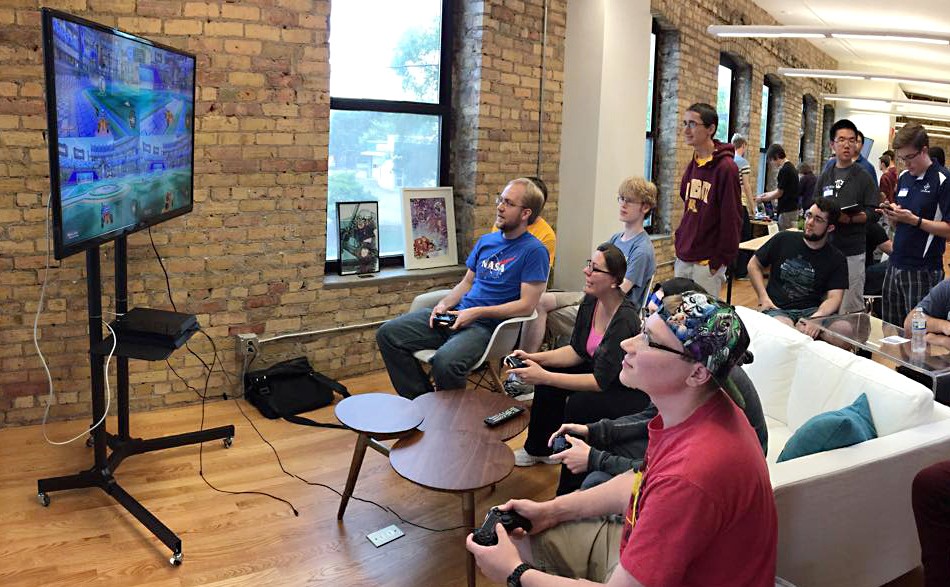A potential partnership between the University of Minnesota and two off-campus groups could help young adults on the West Bank find jobs.
Nonprofit video game developer Glitch, the West Bank Community Coalition and the University met last month to talk about partnering to create opportunities for young adults wanting to get involved in game development, and those involved say they look forward to the potential collaboration.
Glitch, originally a University student group, is now independent of the University, said Executive Director and Co-Founder Evva Kraikul. The organization holds workshops for people ages 18 to 32 to learn how to develop games and get career guidance in the industry, she said.
So far, all plans are preliminary, Kraikul said, but she has had one meeting with members of the WBCC and the College of Liberal Arts to discuss how each contributor can help each other.
WBCC Assistant Director Phil Kelly said the partnership would help West Bank young adults find high-paying jobs they wouldn’t have otherwise considered.
WBCC Executive Director Mohamed Mohamed said he is also optimistic about the possible career options.
“A lot of [the youth] don’t get opportunities … like that … or even have it in their outlook that they could have a career in gaming,” he said.
Others say they believe the relationships the University could forge would end up being one of the biggest benefits of the program.
Social work doctoral student Alexander Fink said he set up the meeting with the WBCC and Glitch, adding that he was active in Glitch on campus and in the West Bank community. He said he thought this connection would facilitate more positive interactions between the University and the West Bank.
“The University has, despite … a number of attempts, really struggled to build a strong and trustworthy partnership with some in the community that sits immediately next door,” he said, adding that students and faculty miss out on building those connections when they aren’t in touch with the surrounding communities.
Rebecca Moss, assistant director for services and projects for the University’s Liberal Arts Technologies and Innovation Services, is helping the groups understand what resources the University could contribute to the partnership if CLA were to be involved. Moss said getting the University involved would improve community engagement with surrounding neighborhoods.
“We have a very unique community on West Bank, and oftentimes the University and the community [are] at odds,” she said. “We need to find a way to improve that by working together rather than working in opposition.”
Nick Wicker contributed to this report.









